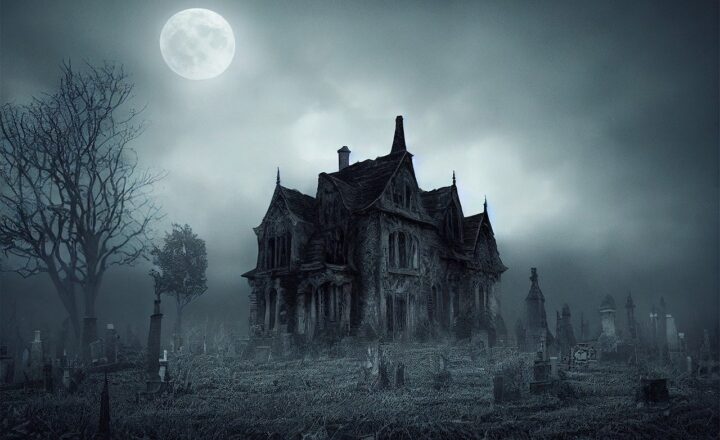The Psychology of Fear: Why We’re Drawn to Scary Stories and Experiences
November 16, 2024

Fear is a complex emotion that has plagued humanity since the dawn of time. It prompts us to flee from danger, prepares us to fight, and can even enhance our ability to interact with the world around us. In modern society, fear manifests itself not just in our lives through real threats but also through the thrilling narratives of scary stories, horror films, and haunted houses. This article delves into the psychology of fear, exploring why we are so drawn to fear-inducing experiences and how these experiences influence our thoughts, behaviors, and social interactions.
1. Understanding Fear: The Basics of a Powerful Emotion
Fear is a biological response to perceived danger, and it activates the fight or flight response governed by our limbic system. When we encounter a threatening situation, our brain initiates a chain of physiological events:
- Release of Stress Hormones: Fear triggers the release of adrenaline and cortisol into the bloodstream, heightening our awareness and preparing our body for action.
- Increased Heart Rate and Blood Pressure: As part of the fight or flight response, your heart rate increases, and blood is diverted away from non-essential functions to muscles and vital organs.
- Rapid Breathing: Breathing becomes faster to supply the body with more oxygen, preparing it for immediate physical responses like running or defending oneself.
Understanding the basic science behind fear can lead to a deeper appreciation of how it shapes our reactions to not only real dangers but also imaginary ones.
2. The Allure of Scary Stories: Escaping to a Different Reality
The sensation of fear can be captivating. Why do viewers flock to horror movies, and why are scary stories such a popular genre in literature? One reason lies in our desire for escapism. Scary stories provide an opportunity for individuals to confront fear in a controlled environment, a safe space where they can explore their anxieties and vulnerabilities without real consequences.
– Psychological Safety: Within the boundaries of fiction, we can experience fear while knowing we are safe. This allows for a psychological exploration of our deepest fears and anxieties in a safe environment.
– Adrenaline Rush: Fearful experiences evoke adrenaline, providing a natural high and a sense of thrill. Many individuals relish the excitement derived from intense experiences, pushing boundaries within the realm of safety.
– Community Bonding: Experiencing fear with others fosters social connection. Watching horror films together or sharing ghost stories creates a sense of camaraderie, as individuals bond over collective fears and shared thrills.
3. The Role of Fear in Personal Growth
Engaging with fear is not just about thrills; it can also promote personal growth. When encountering fear-inducing narratives, individuals can learn:
– Coping Skills: By grappling with fear in fiction, we can enhance our emotional intelligence and develop coping mechanisms for dealing with stress in real life.
– Exposure Therapy Principles: Exposing oneself to manageable doses of fear can help in building resilience. This is the foundation of exposure therapy, a common psychological treatment used to confront anxiety and phobias.
Facing fears in a safe context helps to strengthen our ability to cope with real-life fears and challenges.
4. How Scary Media Stimulates Emotional Responses
Our emotional responses to horror stories and movies are heightened by several psychological principles:
– Suspense and Anticipation: The buildup of suspense can create a heightened emotional state. Filmmakers often manipulate pacing and sound to evoke fear, placing viewers on edge and enhancing emotional responses.
– Identification with Characters: When we empathize with characters, our emotional connection intensifies our fear and anticipation for their fate, making the experience more thrilling.
– Catharsis: Experiencing fear can lead to a sense of relief and satisfaction once the narrative resolves. This process of catharsis can leave individuals feeling cleansed and emotionally lighter.
5. The Science Behind the Horror Genre: Understanding Our Attraction
Research supports the psychological attraction to terrifying experiences. The science of why we enjoy scary media can be examined through:
– The Role of Dopamine: The combination of fear and relief results in the release of dopamine, a chemical linked to pleasure. This dopamine release reinforces the desire for more thrilling experiences.
– Social Comparison Theory: Engaging in scary experiences allows individuals to feel a sense of superiority when they confront what frightens them, leading to self-validation and a boost in confidence.
6. Cultural Variations in Fear and Horror
Fear is universally experienced, but how it is expressed can vary widely across cultures. Different cultures have developed their unique narratives around fear, leading to:
– Cultural Narratives and Myths: Folklore, urban legends, and horror films reflect societal values and expose the fears specific to those communities.
– Coping Mechanisms: The fears depicted in cultural narratives can reveal broader psychological truths and coping mechanisms that particular communities rely on to process their anxieties.
This cultural lens showcases how fear unites us in various ways, transcending geographical boundaries.
7. Conclusion: Embracing Our Fascination with Fear
The psychology of fear is an intriguing area that provides insight into our emotional lives and social behaviors. Our attraction to fear-inducing narratives illustrates something deeper about humanity’s innate curiosity and resilience. By embracing our fears, whether through films, literature, or real-life adventures, we confront our anxieties while finding empowerment and catharsis.
In an era of increasing stability in many aspects of life, perhaps it is our evolutionarily embedded response to fear that perpetuates our fascination with the scary and the unknown, allowing us to thrive in our quest for exploration and understanding the world around us.
Through the lens of psychology, we can appreciate that the thrill of fear doesn’t just entertain us; it also encourages personal growth and social bonding, making it a powerful emotion worth exploring further.






